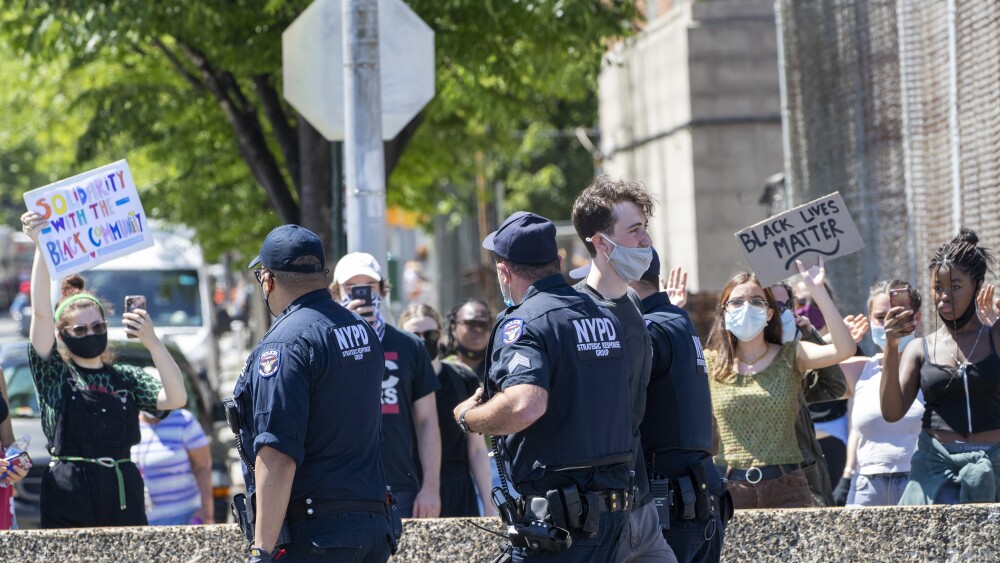By Joanna Putman
Police1
NEW YORK — A federal judge ruled that the NYPD can adopt an agreement regulating policing during protests despite objections from its biggest union, the New York Post reported.
The agreement was struck in September of last year between city officials and lawyers representing people who were injured during protests, according to the report. It stipulated the settlement amounts for injured protesters and banned the practice of “kettling,” wherein police pen protesters in a group to take enforcement action without individual probable cause.
The agreement also set up a four-tiered protest response plan, which specified benchmarks that must be reached before certain policing actions can take place. The response plan drew backlash from the NYC Police Benevolent Association, which claimed it would bar officers from following instinct and policing as they were trained to do, according to the report.
Judge Coleen McMahon heard the PBA’s case and released a 42-page ruling on Feb. 7, according to the report.
McMahon stated in her ruling that the union did not have veto power in the agreement because it was not a party to the settlement, according to the report. The only way for the union to stop the agreement from passing would be by proving that it would suffer legal prejudice as a result.
“There is no evidence in the record before the court that the PBA’s concerns were not seriously considered …” McMahon wrote. “There is evidence that it chose to be oppositional simply to be oppositional.”
PBA President Patrick Hendry objected to the ruling, saying that the response regulations would damage the department’s flexibility in responding to protests, according to the report.
“If the NYPD is unable to prevent future demonstrations from devolving into chaos, the parties who signed onto this settlement must bear the blame,” Hendry said in a statement.


